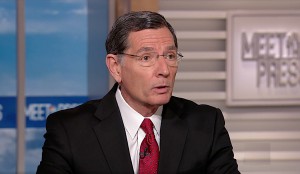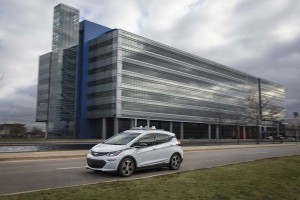
Michigan Senator Gary Peters is concerned by the delay of legislation that would set guidelines for testing autonomous vehicles.
The news out of Washington just got worse for automakers as two pieces of legislation they’d hoped would be passed by the end of the year won’t even be considered, putting off them off until 2019.
The two measures – one to accelerate the adoption of self-driving car technology and a second to extend the $7,500 tax credit for electric vehicles – were not attached to last funding bill for 2018, thus will not get approved in 2018.
Sens. John Thune (R-South Dakota) and Gary Peters (D-Michigan) were pushing legislation that would allow exemptions to automakers for testing autonomous vehicles on public roads. The goal was to homogenize the rules for all states, making it easier to get the testing complete in more states.
The delay, which will stretch into early February at least, has supporters feeling that other countries will assume the development mantle from the U.S. China and South Korea in particular “are betting big on the technology and they are developing the regulatory framework to accommodate it,” Peters said.
(GM presses to extend EV tax credits. Click Here for the story.)
Peters isn’t alone in his concern, automotive trade associations and lobbyists are expressing worry over the potential delay, or even defeat, of the legislation, which will need to be reintroduced next year.
The Alliance of Automobile Manufacturers called the bill’s failure “a setback for the development and ultimate deployment of potentially life-saving technologies, and leaves many unanswered questions on how this technology will be regulated,”Reuters reported.
Automakers may attempt an end run on the legislative angle by trying to convince the National Highway Traffic Safety Administration to take up the cause. In October, NHTSA said it was considering a pilot program to allow real-world road testing for a limited number of vehicles without human controls, Reuters reported. Right now, automakers can test up to 2,500 vehicles.
The agency followed that up this week, announcing it was eliminating a requirement no longer first declare petitions “complete” before publishing a summary of the request. Now the agency can zero in on the safety of a vehicle without a driver or steering wheel and brakes.
This would help GM as it submitted a petition to test a fleet of autonomous vehicles in January. No action has been taken on the measure, in part, because the vehicles won’t have drivers or human controls.
(Click Here for more about NHTSA’s latest action regarding self-driving vehicles.)
Less concerning was the inability of automakers, particularly General Motors and Tesla, which are most affected, to get lawmakers to extend the $7,5000 electric vehicle tax credit. Tesla buyers won’t be eligible for it after Jan. 1, and by the end of 2019, there will be no tax incentives at all for Tesla buyers.

Senator John Barrasso (R-Wyoming) is unconvinced that the electric vehicle tax credits should be extended.
GM is right behind Tesla in running out of the $7,500 credits – once an automaker sells 200,000 EVs, the credit drops to half, or $3,750, and then continues to drop – and had lobbied to extend the window for the full amount going forward.
Nissan and Ford aren’t far behind. Newer entries into the electric car field, such as Volkswagen and Hyundai, would effectively gain an edge by continuing to offer the credits.
Instead, the prevailing sentiment appears to be to cut the credit entirely. Earlier this month, President Donald Trump said in a tweet he was seeking ways to revoke GM’s remaining credits. That was followed by Larry Kudlow, the administration’s chief economic adviser, saying Trump was looking to end the credits altogether. Senator John Barrasso (R-Wyoming) introduced legislation to end the credits as well.
(To see more about Trump disparaging GM and its CEO Mary Barra, Click Here.)
“The idea of the subsidies had to do with trying to make sure that electric vehicles would be a viable technology,” said Barrasso, who chairs the Senate Environment and Public Works Committee, said this week. “Well, that’s clearly there.”

